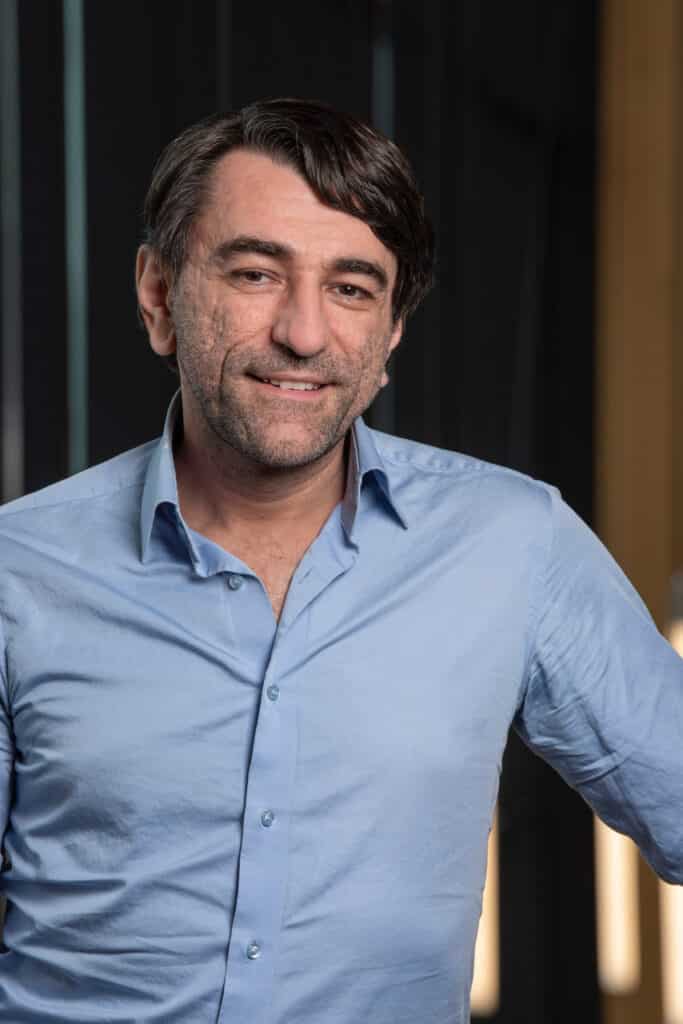Features
Reflecting, Regrouping & Reconnecting Through Live Experiences: Drom’s Artistic Director Ruminates On The Venue’s 15-Year Anniversary

By Mehmet Dede
Humans communicated and built trust through social relations throughout history, especially through face-to-face interactions. These days, to be in touch with someone has been redefined in the face of a global pandemic, the rise of social media and the new creative economy. Music and the performing arts have always acted as a magnet to gather people in groups going back to ancient Greece. This is why they need their own watering holes to discover new art, form new connections and have honest dialogue. In the modern era, cities need their community art spaces, their musical agoras. What is the place of smaller venues, and there are many of them, who came back from the brink of closing just a year or two ago to facilitate programs again that highlight marginalized, sometimes forgotten or ignored communities? What form does cultural expression take when conveyed in-person in a post-remote, hyper-connected digital world?
I immigrated to New York City from my hometown of Istanbul in my twenties. Having cut my teeth in concert production, I jumped into New York nightlife as a festival producer and independent promoter. Working in and interacting with various diverse communities and sub-cultures in the N.Y. cultural landscape eventually led to an invitation to join a new club opening in the East Village. This year that club, Drom, our home away from home, is turning 15. Drom, an homage to the influential 1994 Tony Gatlif-directed documentary “Latco Drom,” translates as the journey from the Gypsy/Roma language. It was conceived by Serdar Ilhan as a musical hub for cultures from far-flung places in South America, Asia, Europe and the Mediterranean, but also to highlight American homegrown genres like folk, rock, soul and jazz, hence its motto #dromishome. In the new millennium, as New York turned into a new kind of Global City, Drom’s programs were there along the way to celebrate the inclusivity and diversity of this city, representing both the immigrant and the local experience.
Smaller venues are not simply another voice in the cultural fabric of cities – they are essential pieces that bridge communities and connect people. Diverse, accessible, non-judgmental and inclusive events start at the grassroots level where artists, supporters, volunteers, friends and citizens can come together and they are as vital to the cultural landscape as much as larger institutes and public performing art centers. Just like the artists they host, venues and spaces operating in the culture space, are storytellers, too. They form around communities, they have their own identities and they leave behind legacies. Physical spaces, whether they are small business or non-profit in nature, help bring truth and beauty onto the stage, give artists the respect they deserve and promote understanding towards one another, especially in divided times.
In New York, these venues emerged as part of the larger art and nightlife community in times of gentrification, rising rents, glass building empires and dizzying changes in technology and communication. The angst that started with Y2K at the turn of the millennium turned into a different kind of anxiety in the post-9/11 world. The last two decades plus saw hurricanes, blackouts, mass protests and the Great Recession. Each time we asked ourselves, will New York ever be the same? And then came COVID-19. As stages turned dark and silent, the music performance moved out of these venues to an online space. Laid off and staring down an unknown future, those working in the performing arts and nightlife turned to other professions to make ends meet.
During the 15-18 months when many venues were closed in 2020-21, I came to appreciate why I loved my job. It was always there until it wasn’t. Cultural professionals are the ones behind the stage, not the microphone. Music spaces are in the service of the public even if privately owned. Our stages belong to the artists. Our rooms are literally empty without community members. The longevity of indie venues is the success of the communities they serve. As we are moving from the COVID-19 era into another yet-to-be-defined period, we have to reclaim our spaces and empower each other with a collective spirit to endure future ebbs and flows. We have the social capital and the cultural currency to do that, and we need more event producers with global perspectives to create and develop new programs for the good of society. We need social engineers who are deeply involved in civic engagement and community members to take action to help build empathy.
Philosopher and educator John Dewey remarked decades ago that we don’t learn from experience, but from reflecting on those experiences. The last two and a half years gave us time to reflect, regroup and reconnect. On this anniversary year, I am filled with gratitude to be physically here and present once again. The resilience of the last few years, or the last fifteen for that matter, is proof that all of us are in it for the long haul and must continue to build our respective communities for a thriving society.
Mehmet Dede is the Artistic Director at Drom, the East Village venue celebrating its 15th anniversary with a series of special concerts throughout 2022. Drom is co-presenter of globalFEST at Summer for the City at Lincoln Center on Sat, July 30, a free, outdoor musical discovery event with unique voices hailing from across the world.